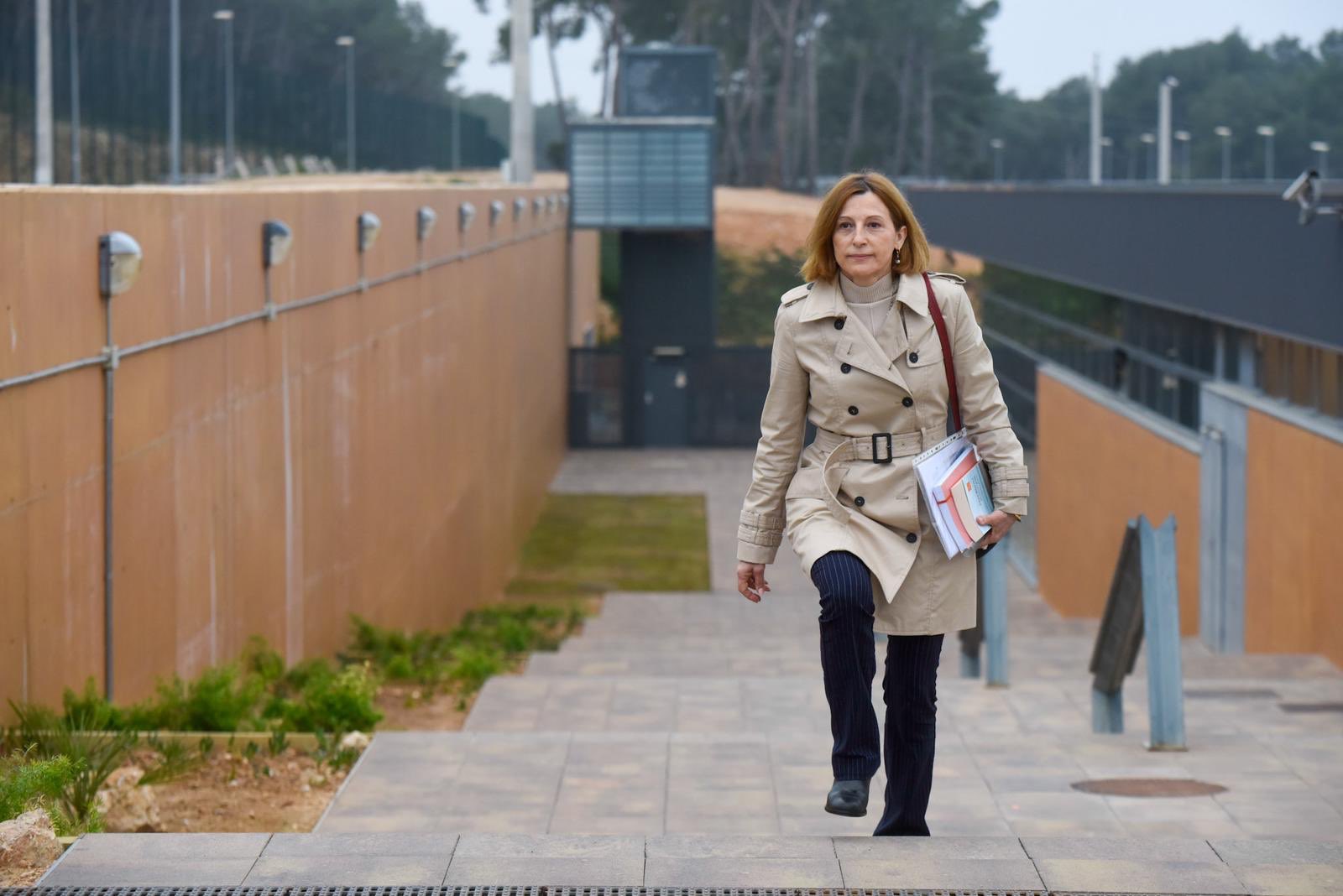Spanish public prosecutors are persisting in their attempts to block prison leave granted to the jailed Catalan pro-independence leaders. In the latest case, the public attorneys in the city of Lleida have appealed against a prisons court decision to allow the former speaker of the Catalan parliament, Carme Forcadell, to continue to leave prison to carry out volunteer work and care for her mother.
It will be the Tarragona Audience court which will decide on this appeal in which, similar to others previously made against the granting of work leave to the pro-independence prisoners, the prosecutors assert that the application of this work leave provision is "exceptional" and that "it must be based on a specific treatment programme".
In this regard, they consider that, since Forcadell was sentenced to eleven and a half years' prison for sedition, "the programme should aim to teach the prisoner to respect the law", but, they say, this is not the case.
The Lleida prisons court ruled on Tuesday that Carme Forcadell could be released from prison to volunteer and care for her mother through the application of article 100.2 of the prison regulations, which permits hundreds of Catalan prisoners every year to undertake work activity outside the prison while serving their sentences.
The Lleida judge was satisfied that the former parliamentary speaker had accepted "not only the facts, but the error and error in the ways, means and form used to achieve the goal of unilateral independence" from Spain. The text presented by the judge said that Forcadell "recognizes the crime", she had "made a functional and critical analysis of her criminal conduct" and had "abandoned political life." Thus, "flexibility of the ordinary [prison] regime is sufficiently justified."
The prosecutors, in opposition
But the Lleida prosecutor's office, responsible for the appeal, disagrees with the decision of this court. It states that the application of article 100.2 must serve a specific treatment programme "which cannot be carried out in any other way". The prosecutors do not see any connection between the work leave granted and any strategy to help Forcadell overcome her "shortcomings".
In addition, the appeal adds that Forcadell has not served a quarter of the sentence, a key milestone in the granting of permission for prison leave. This mark will be reached on February 2nd, 2021.
The prosecutors also say a regime such as that granted to Forcadell intends to make possible re-education and social reintegration but that Forcadell, in addition to already being "fully integrated into society", has been convicted of sedition, and therefore the programme she follows in prison should aim to teach her "respect for the law."
As for the permission she has been given to care for her mother, the prosecutors once again state that they don't understand any relationship with Forcadell's crime or her treatment. The submission also considers that this granting of this permission violates the principle of equality with other inmates, and has not been backed by any declaration that she has no other relatives who could provide Forcadell's mother with the same support.
Quim Forn: prosecutors' argument rejected
Meanwhile, a prison court judge has ratified work leave for another of the pro-independence prisoners, Quim Forn, which had also been appealed by public prosecutors. The court ruling was highly critical of the prosecutors for their assertion that the inmate needed to "change or modify his thinking and political ideology". Such attempts to "reject and modify the principles, thoughts and legitimate wills of the inmate", said the court, "are not contemplated in the penitentiary regulations, nor in the Spanish Constitution".
The Spanish public prosecutor's office has appealed against all the other work leave permissions granted to the pro-independence prisoners up until now, and so far the judges have rejected all their submissions.

